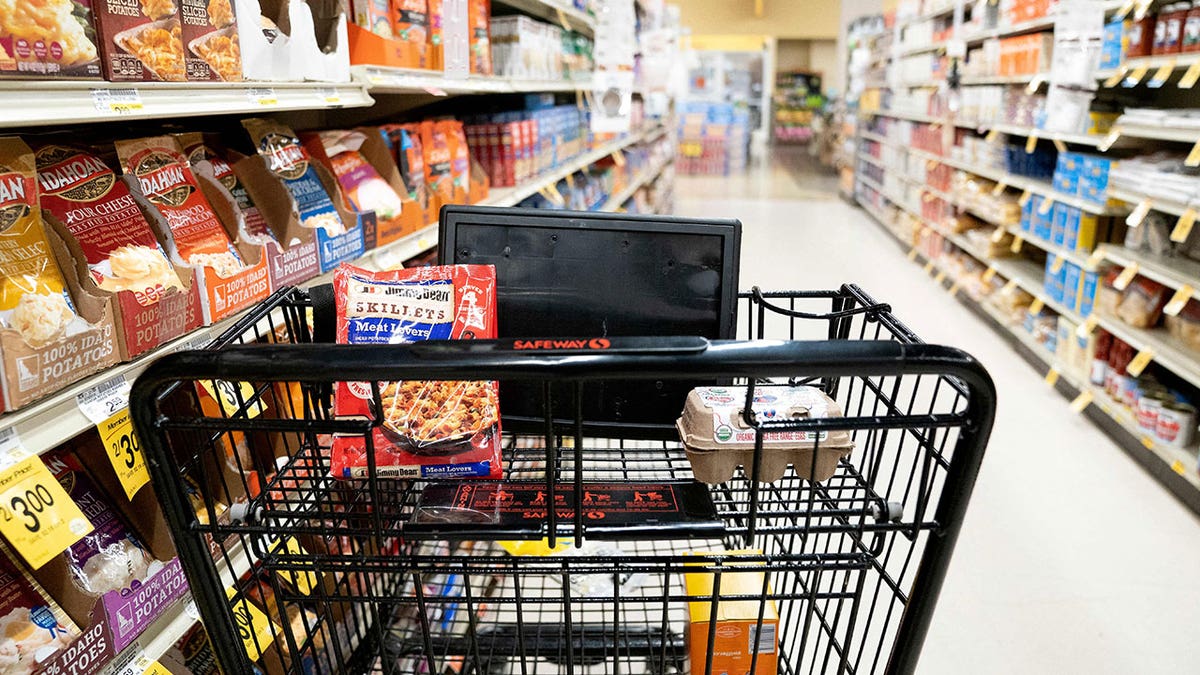Fox News Flash top headlines for June 1
Fox News Flash top headlines are here. Check out what's clicking on Foxnews.com.
Alabama lawmakers are poised to remove half of the state's sales tax on food, a move that some legislators and advocacy groups had sought for decades but that gained bipartisan traction this year in the face of soaring food prices.
The Senate Finance and Taxation Education Committee on Wednesday advanced House-passed legislation that would remove half of the state’s 4% sales tax on food. Lawmakers are aiming to give final approval to the bill on Thursday, one of the final two meeting days of the legislative session.
Alabama is one of only three states that tax groceries at the same rate as other purchases.
ALABAMA’S GROCERY SALE TAX MAY BE CUT IN HALF UNDER BILL APPROVED BY THE STATE HOUSE
Republican Sen. Andrew Jones, the sponsor of the Senate version of the bill, said the measure has gained support this year as the state sees a record budget surplus — partly driven by rising prices causing higher sales-tax collections — and consumer frustration over the cost of food.
"Legislators are hearing from their constituents. Folks are feeling the pinch. They see what it’s taking for folks to put food on the table for their families. And that’s why you’ve got more momentum than ever, I believe," Jones said.

A grocery cart sits in an aisle at a grocery store in Washington D.C., on Feb. 15, 2023. Alabama’s grocery sale tax may be cut in half under a bipartisan measure that was approved by a Senate committee Wednesday. (STEFANI REYNOLDS/AFP via Getty Images)
BIPARTISAN ALABAMA MEASURE CUTTING HALF OF STATE’S 4% SALE TAX ON FOOD ADVANCES IN STATE LEGISLATURE
Some lawmakers have pushed for decades to remove the tax— which they said hurts low and moderate-income families — but the efforts failed because of the projected loss to education funding and a lack of political appetite for raising other taxes to offset the revenue loss. The advancing legislation calls for a gradual removal of half the tax.
The House-passed bill would reduce the 4% tax on food to 3% on Sept. 1 and to 2% on Sept. 1, 2025, provided that tax collections to the Education Trust Fund are projected to rise enough to offset the difference. The 4% tax provides more than $600 million annually to the state for education funding. Cutting it in half would cost the education budget an estimated $318 million annually.
Jones said lawmakers are creating a study commission to explore the possibility of eventually removing all of the tax. As people save money on grocery taxes, some will spend that money on other purchases and generate other sales tax revenue, he said.
The bill allows local governments to also remove the sales tax on food. Jones said counties are seeking the addition of language that would mirror the budget safeguards put in place for the state by linking the removal of the tax to budget growth.
"I think everybody recognizes the political pressure to remove the sales tax on food. In many counties, the substantial portion of the sales tax revenue goes to local schools," said Sonny Brasfield, executive director of the Association of County Commissions of Alabama.





